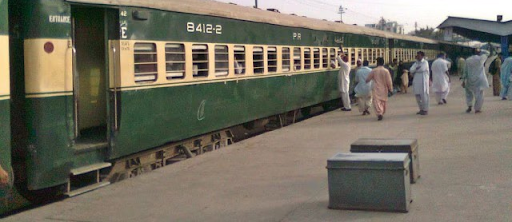Description

Copyright infringement not intended
In News: The Department of Consumer Affairs and German Federal Ministry for Economic Affairs and Climate Action (BMWK) organised two days event on Quality Infrastructure (QI).
Details:
- The visit of the delegation from the German Federal Ministry for Economic Affairs and Climate Action (BMWK) to India underlines the importance of Indo-German Working Group on Quality Infrastructure for trade, product safety and consumer protection and provides an excellent opportunity to the experts from both the sides to improve the mutual understanding of the German and Indian approaches to quality infrastructure (QI).
- Quality infrastructure is a system that covers everything needed to ensure safe, high-quality products and services: from standardisation, conformity assessment (testing, inspection and certification) and accreditation to metrology and market surveillance.
- These elements form the system and processes that protect people, health and the environment.
- Quality infrastructure plays a vital role for business, innovation and trade – both nationally and across borders.
- It is therefore important for a country to have a well-designed and coherent QI system which is also in line with international best practices to play a vital role in global trade. They reduce time, cost and business uncertainty for companies as well as ensure consumer safety.
Background of relations:
- India was amongst the first countries to establish diplomatic ties with the Federal Republic of Germany after the Second World War.
- India and Germany have a 'Strategic Partnership' since 2001.
- India is amongst a select group of countries with which Germany has Intergovernmental Consultations dialogue mechanism.
- Regular visits take place from both sides, including at the highest level.
- There is an Indo-German Parliamentary Friendship Group, in German Bundestag since 1971. ➢
- ome States and Cities of India and Germany have entered into twinning arrangements. Karnataka and Bavaria have Sister States arrangement since 2007. Mumbai and Stuttgart are sister cities since 1968. In January 2015, Maharashtra and BadenWurttemberg signed a MoU to establish a Sister State relationship.
- India-Germany Defence Cooperation Agreement (2006) provides a framework for bilateral defence cooperation.
- Germany is India's largest trading partner in Europe. India was ranked 25th in Germany's global trade during 2018.
- Germany is the 7th largest foreign direct investor in India since April 2000. Germany's total FDI in India from April 2000 until March 2019 amounted to US$ 11.7 billion.
- A Fast-Track System for German companies has been operating in Department of Industrial Policy and Promotion (DIPP) since March 2016. India and Germany signed a Joint Statement on April 1, 2019 to set up a Fast-Track system on the similar lines for Indian Companies in Germany.
- Indo-German Science & Technology cooperation started with the signing of the Intergovernmental S&T Cooperation Agreement in 1971 and 1974. There are more than 150 joint S&T research projects and 70 direct partnerships between Universities of both countries.
- India and Germany have a long tradition of academic and cultural exchange. Max Mueller was the first scholar of Indo-European languages to translate and publish the Upanishads and the Rigveda.
- There are about 1.5 lakh Indians and people of Indian origin (2017 figures) in Germany. The Indian diaspora mainly comprises of professionals, technocrats, businessmen/traders and nurses.
Germany
- Germany is formally known as the Federal Republic of Germany.
- It is located in Central Europe.
- It is the 2nd most populous country in Europe after Russia.
- It is the most populous country in the European Union.
- Germany is located between the Baltic and North Sea in the north.
- Germany shares borders with;
- The Alps in the South.
- Denmark in the north.
- Poland and the Czech Republic in the east.
- Austria and Switzerland in the south.
- France, Luxembourg, Belgium, and the Netherlands in the west.
- It is the 7th largest country in Europe.
- Most people follow Christianity.
- The official language is German.
- The capital is Berlin; it is also the largest city.
- Germany has the largest economy in Europe.
- It is the world's 4th-largest economy by nominal GDP and the 5th-largest by Purchasing power parities (PPPs).
- It is both the world's third-largest exporter and importer of goods.
- It is categorised as a developed country, it ranks very high on the Human Development Index.
- Areas of Rhine, Danube and Elbe are rich in natural resources including iron ore, coal, potash, timber, lignite, uranium, copper, natural gas, salt, nickel, etc.
https://www.pib.gov.in/PressReleasePage.aspx?PRID=1839913
1.png)















